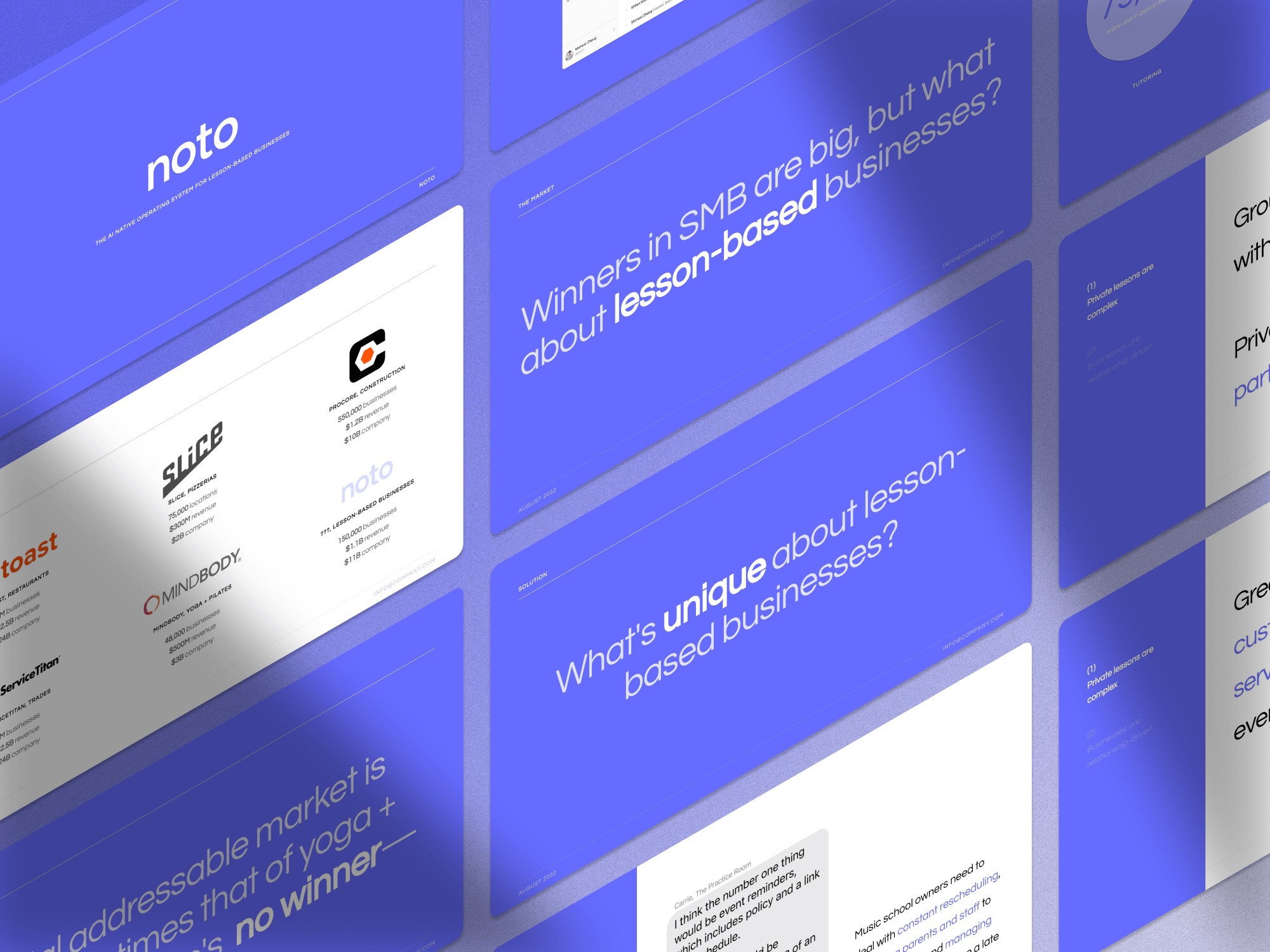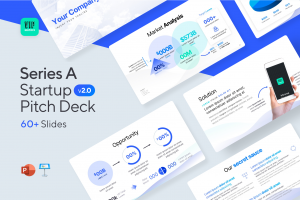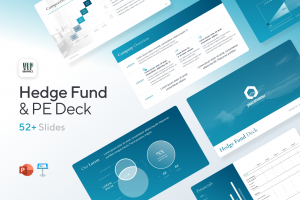Noto, an NYC-based startup that provides software to automate tasks for lesson-based businesses, has raised $3.8 million in seed funding led by Base10 Partners.
Led by AJ Ding and Steve Wang, Noto provides an AI-powered operating system that combines scheduling, payment processing, student progress tracking, curriculum management, and parent communication into a single interface, using artificial intelligence to automate administrative tasks and improve learning outcomes.
“Noto isn’t just about managing your business; it’s about transforming it. By automating routine tasks, enhancing your online presence, and improving the experience for all stakeholders, Noto sets the stage for your music school or tutoring center to thrive in the modern educational landscape” – the company said in a blog post.
Ding, a second-time founder and Yale-trained statistician, previously built an AI recruiting platform. Wang was the founding engineer at Nitra, a software company for doctors’ offices backed by A16z.
The founders spent the summer of 2024 knocking on the doors of small firms across New York City, and they kept hearing the same story: It was a nightmare to keep track of admin, and business owners are constantly worried about missing payments, scheduling snafus, and miscommunication with parents.
“We ended up interviewing about 150 businesses over two weeks, walking around six hours a day,” Ding, Noto’s co-founder and CEO said.
In September, they launched Noto with the goal of not replacing the tutors but instead freeing up their time. The company says that Noto isn’t just another management tool; it’s a complete ecosystem that addresses the needs of owners, staff, students, and parents.
The company intends to use the funds to expand its product and AI capabilities, with plans to enhance features like automated progress tracking, smart scheduling that optimizes instructor availability, and an AI system that can provide insight into student performance.
Check out the 44-slide pitch deck Noto used to secure the $3.8 million Seed funding from Base10 Partners.
What were the slides in the Noto pitch deck?
Browse the exact example slides from the pitch deck that Noto used to raise a $3.8M round led by Base10 Partners.
1. Know Your Customer Slide
As a founder, your number one priority should be your customer, even before the product itself. Creating a product without understanding who it is for is like trying to hit a target in the dark without knowing where it is.
This is even more important in this age where customers are savvier than ever. They have more choices, and can easily compare products and services online. This increase in access to information means customers can select products that are better at solving their pain points.
Investors also understand that prioritizing customer-driven innovation — creating products or services specifically tailored to address the pain points and preferences of the startups’ target audience — is crucial to achieve good return on their investments. If you want to win them over, show that you’ve done your homework and truly understand the people you’re building for.
There are multiple customer explaining slides in the Noto pitch deck showcasing founders’ in-depth understanding of the lesson-based businesses. These slides cover everything, from the number of lesson-based businesses to their working, and everything in between. The slides utilize simplistic graphics, big font, and concise text.
That said, there’s still room for improvement. For instance, improving text contrast, especially for smaller fonts, could make some slides easier to read. A lighter font color or a darker background would help. But overall, the slides do a solid job of painting a clear picture of the competitive landscape.
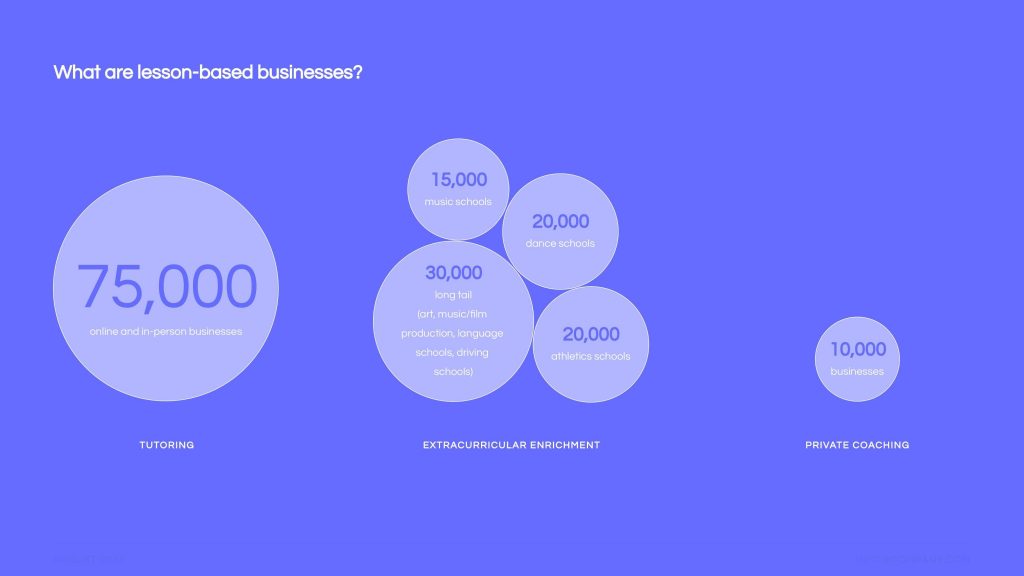
2. Competition Slide
Founders often worry that bringing up competitors will make their pitch seem weaker. But avoiding the topic can actually do more harm than good. It signals to investors that you don’t understand the market, or worse, that you’re pretending it doesn’t exist. Knowing who you’re up against and where you fit in isn’t optional; it’s essential for building credibility and securing funding.
In your pitch deck, when you acknowledge who you’re up against, you show that you’ve done your homework; that you’re placing your solution in a real, functioning market and signaling that you know what makes your approach worth betting on. It also gives you the opportunity to call out your competitors’ shortcomings—and explain how you’re turning those into your advantage.
Noto’s competition slide does this well. It makes a clear case that existing players are clunky and outdated, and positions Noto as the modern, user-friendly alternative. The slide adds credibility with stats, and the visuals (like screenshots of spreadsheets and calendar apps) help reinforce the point. The design is clean, and the message comes through clearly: Noto knows the landscape and is ready to disrupt it.
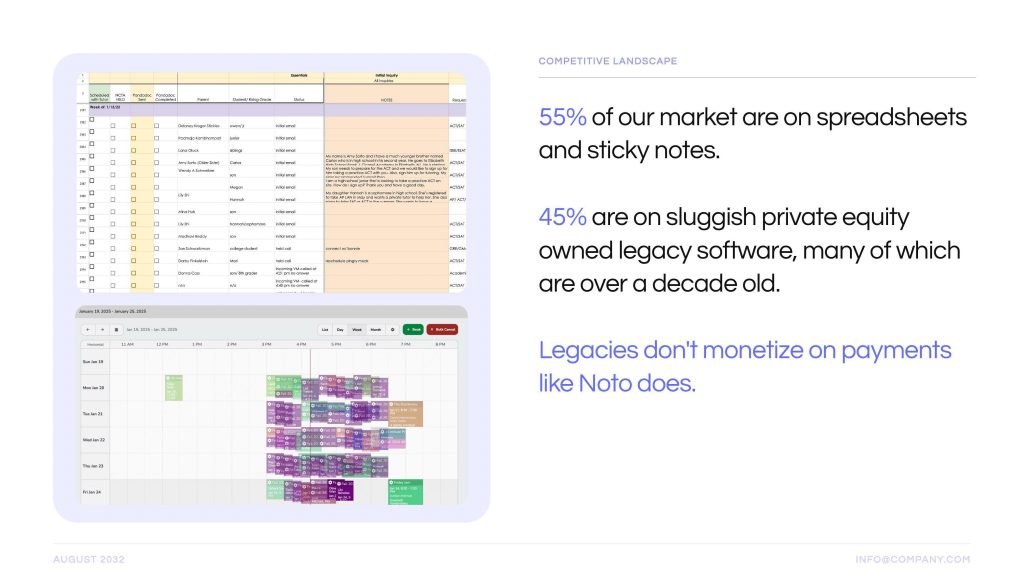
3. Team Slide
Successful startups are often created by founders with a level of obsession for a particular industry because it equips them to endure the long haul that it takes to build a company without burning out or losing faith. This is called ‘Founder-market fit’.
Founder-market fit is critical at the seed stage. For investors, founders, their experience, and the overall team dynamics and balance are critically important. They always put a heavy emphasis on the value of founders with rounded and collective experiences. As such, when looking at a deck for the first time, investors assess the team page with great interest.
When creating the team slide, it’s important to list each founder’s accomplishments and experiences. We’ve seen pitch decks with the founder’s description as “Sales Ninja” with zero further information, which is very bad practice — be specific about the what and where of each members’ experience. More is better!
Noto’s team slide doesn’t miss the mark when it comes to highlighting the right details. It tells a compelling story by noting that the founders “come from a family of SMB owners,” which immediately builds relevance and credibility. It also showcases key accomplishments like previous startups and successful funding rounds, adding weight to their track record.
That said, the placement of this slide—buried at slide 20—is far from ideal. For an early-stage startup, especially one with a strong founding team, this information needs to come much earlier in the deck. Investors bet on people as much as ideas, so putting the team front and center can make a big difference in how the rest of the pitch is received.
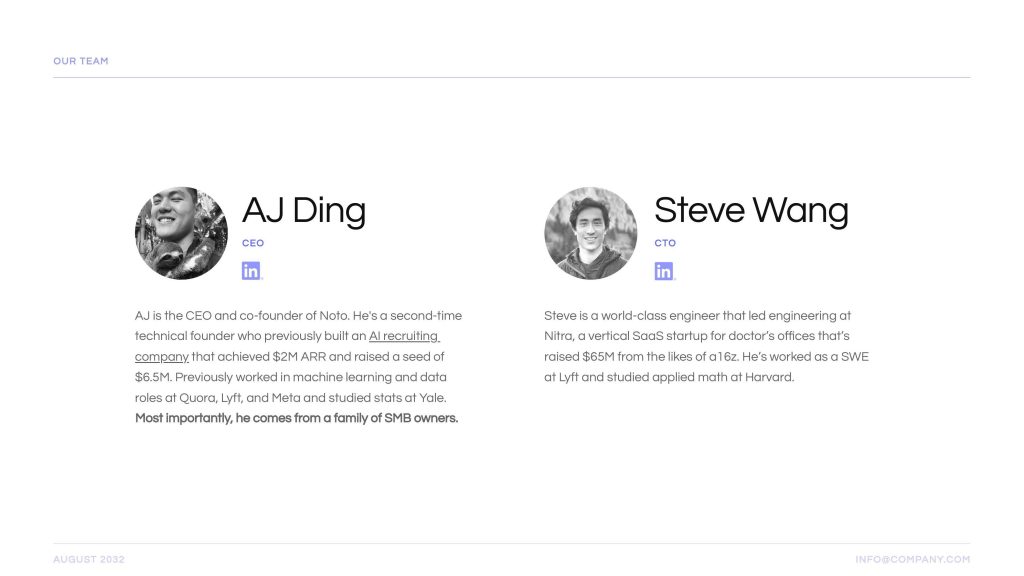
How-to create your own pitch deck like Noto
We hope you learned something from the Noto pitch deck, and that you are able to use these insights for your own business. If you’d like to, you can bookmark it at bestpitchdeck.com/noto.
Although it probably goes without saying that having a successful business (outside just their pitch deck) was integral to their success, the perfect pitch deck is critical for any startup to ensure your vision is portrayed properly. That’s where crafting the perfect pitch deck becomes essential:
You might find our other resources on how-to create a pitch deck helpful, or benefit from using one of our expert-designed templates:
Our team has helped create decks that have closed over $100M+ in deals & funding for leading startups and even VC firms. You can leverage this experience and get a jumpstart on your pitch with one of our easy-to-use presentation templates, one-pagers, or financial models.
Creating a deck? Check out our pitch deck templates.
Every pitch requires a unique approach tailored to its audience. Our team of experts has created pitch decks for different industries, as well as funding stages:
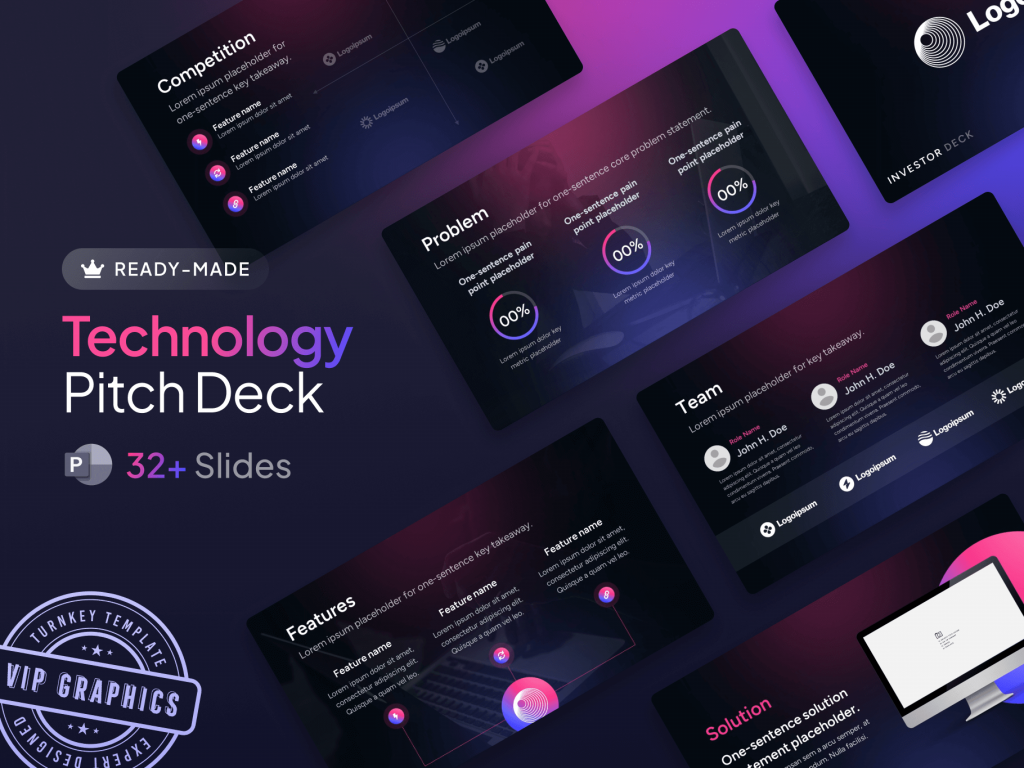
You might be interested in the popular Tech Startup Pitch Deck Template template designed by our team of experts at VIP.graphics. This investor presentation template is built specifically for tech startups seeking to raise Seed funding.
Accelerator Pitch Deck Template — The Accelerator Pitch Deck template was crafted for early-stage founders seeking to win funding &/or investment from pitch contests, accelerators, incubators, and angels or VC firms. Winning a pitch contest or being accepted to a prominent accelerator program requires a unique strategic approach to an investor pitch presentation.
Series A Pitch Deck Template — A pitch deck template for startups and founders raising funding: Smart, actionable slides that work. This is a pitch deck template built specifically for startups, entrepreneurs and founders raising their first seed or Series A round of institutional capital.
Mergers & Acquisitions Pitch Deck Template — Perfect Pitch Deck™ is a template crafted for later-stage businesses entering more sophisticated discussions such as mergers & acquisitions (M&A), late-stage investment (Series C+), or other partnerships & financing opportunities. Our team of experts created this presentation to empower founders to present with confidence to investment banks, private equity (PE) groups, and/or hedge funds (and vice versa).
Alternatively, feel free to browse our growing selection of pitch decks tailored for specific industries and businesses.
